This post contains affiliate links from which I may receive a small commission, at no extra cost to you. In no way does this affect my opinion or the information I provide on the product. Please read my disclaimer for more info.
More and more people are turning to the holistic approach for optimal health and nutrition instead of dieting and cutting calories— and it’s great! But what is holistic nutrition and how can you apply it to your everyday life?
What is holistic nutrition?
Holistic nutrition is a natural approach to eating healthily by taking into consideration all aspects of well-being. Sure enough, it takes into account multiple factors such as one’s health history, lifestyle, current diet, emotional state, and likes and dislikes in order to establish a personalized food and lifestyle plan.
It focuses on addressing the root cause of a problem instead of treating the symptoms. The goal is to develop a healthy relationship with food and to understand the importance of nutrition for optimal health.
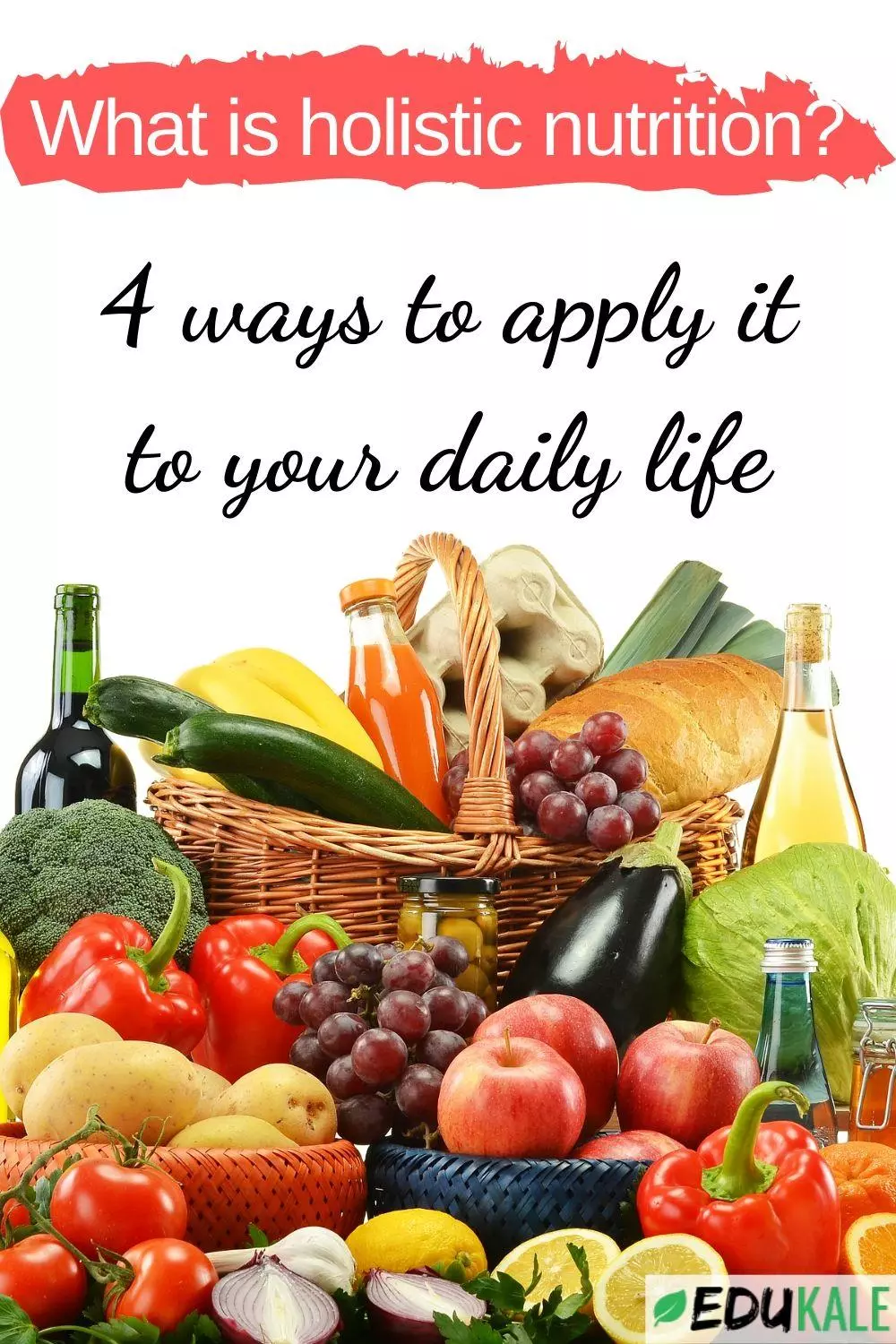
The basic principles of holistic nutrition
In holistic nutrition, food isn’t only a source of energy. It is also a way to provide your body with the proper nutrients to regenerate and heal. It’s important to learn the basics of nutrition in order to understand which foods to eat and their effect on your body.
Holistic nutrition is also focused on incorporating more whole, natural, and organic food into your diet, while staying away from processed foods. For this reason, it’s important to cook your own food instead of reaching for convenient ready-made products. Holistic nutritionists believe that the body’s immune system and capability to heal is directly linked to the foods you consume.
Eating healthy, natural foods can prevent and even fight disease. In addition, holistic nutrition should enable a healthy relationship with food, viewing it as an amazing way to fuel and heal your body instead of a physical or emotional filler.
4 simple steps to apply holistic nutrition to your daily life
Here are some simple steps to help you start out your holistic, healthy eating:
1. Chose whole, unprocessed foods whenever possible.
Your body is designed to digest and assimilate food in its most natural form. This is what will bring you the most energy.
Chose whole foods whenever possible, such as whole fruits instead of fruit juice or applesauce, and whole vegetables instead of canned ratatouille or ready-made soups. Frozen fruits and veggies count as natural whole foods, too.
Include some whole grains, beans, nuts, and seeds as well. Try to eat these foods as much as possible— this will leave little room for the super addicting high-sugar high-fat high-salt processed stuff. If you want some ideas, make sure to download my free optimal nutrition checklist!
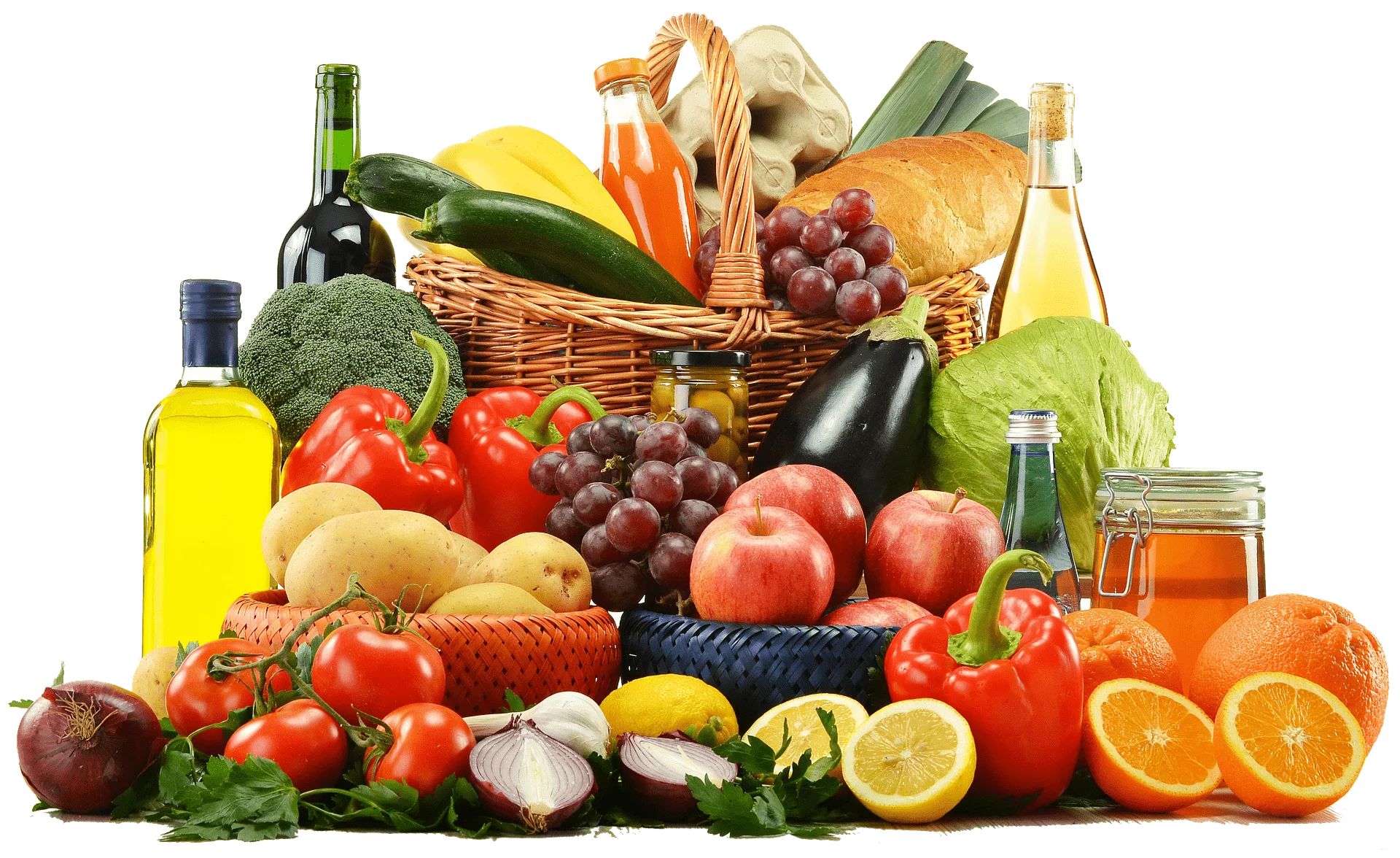
2. Practice mindful eating.
Being in touch with your natural hunger cues and emotions is crucial for a healthy relationship with food. It’s important to connect your food with your mind and body. Before a meal, think about what you want, what you need, what certain foods will or won’t bring to your body, along with their effect on your physical appearance and mental state.
During a meal, eat slowly, take the time to chew, and pay attention to the different textures and flavors of your food. Make sure to eat without any distractions, entirely focused on appreciating your food.
Mindful eating can help you regain control over your eating habits, leading you to make healthier food choices. It short, it has many health benefits: you can learn more about mindful eating here.
I also recommed reading a book about mindful eating. This one will help you understand your eating cycle, teach you tips and exercises on mindful eating, help you with your self-control, help overcome your binge-eating, and more! If you actually spend money on a book, you will be more likely to invest some time and effort into reading it and putting it into practice, rather than just reading this article and moving on with your day for example!
3. Don’t focus on the calories— go for the nutrients.
Too many people think that counting macronutrients (carbohydrates, fats, and proteins) is the only way to go for a balanced diet. Not only is that false, but it can also encourage unhealthy eating behaviors.
Instead, try to eat a variety of whole, different-colored foods in order to get all of your micronutrients. You can have a general idea of the macros on your plate, but make sure not to become too consumed by it. If you eat a variety of natural, nutrient-dense foods and listen to your hunger cues instead of counting calories, you will definitely nourish your body the right way.
4. Practice holistic living with aspects other than nutrition.
Bettering your nutrition is a great step to leading a more holistic lifestyle— but you shouldn’t stop there! For instance, include regular physical activity into your routine for better health, sleep, energy, and general happiness. In the same way you should limit unnatural foods, try to reduce the number of toxins you are exposed to in your environment by using natural products (cleaning products, shampoo, soap, body creams, clothes…)
Opt for organic when you can, or even make your own! In addition, strive for a stress-free life (as best you can, I know it’s easier said than done!) by practicing meditation and regular self-care, and staying in touch with your emotions.

The limits of holistic nutrition
While holistic nutrition certainly has health benefits, be cautious about certain aspects.
Firstly, detoxing is often mentioned as a principle of holistic nutrition. However, your body is able to detoxify itself naturally (thanks to its liver) and drinking detox teas and juices don’t serve much purpose. That being said, if you just genuinely enjoy these beverages, you can go for it, as long as you’re not consuming some “weight-loss teas” that can actually be harmful to you.
In addition, some holistic nutritionists might recommend the use of supplements for optimal health. While certain conditions and diets might require some, most of them certainly aren’t necessary. It’s a matter worth discussing with your doctor, and might require getting some blood work done
Finally, although I am the first one to say how crucial nutrition is for good health, holistic nutrition is not a replacement for medicine. While it can certainly help prevent some diseases, it shouldn’t be seen as a cure. Please do not see holistic nutrition as a way to replace expert medical advice.
Holistic nutrition in conclusion
In short, holistic nutrition considers the individual as a whole in order to reach optimal health and nutrition. The goal is to enable you to develop healthier eating habits as well as a saner relationship with food. Holistic nutrition has many great health benefits and you can easily apply it to your daily life.
More References
NANP: what is holistic nutrition
Holistic nutrition: 1 2
-Lucie
If you’re interested in nutrition, its impact on our health, and the science behind it, you should definitely read How Not to Die. In this book, Doctor Michael Greger, founder of Nutrition Facts, examines the top causes of death in America and explains how your diet can prevent— and in some cases even reverse— them. His advice is all backed by science and he writes in a very clear and entertaining way. This book isn’t a list of what you already know. It will teach you the keys to living a long healthy life, in a simple and practical way, and without spending fortunes on supplements and pills!
PLUS if you want to take it a step further, you can check out the How Not to Die Cookbook to implement the advice easily!

Welcome!
I'm Lucie, the nutritionist behind Edukale! If you'd like to learn more about me, click HERE !
Read More!
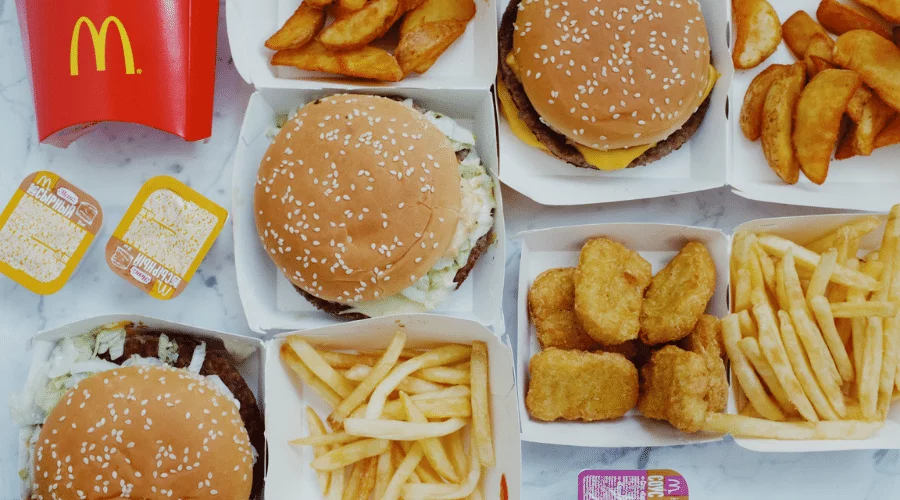
The truth about processed foods
You’ve probably heard that it’s best to reduce your intake of “processed foods” for healthy eating, and increase your intake of whole foods for optimal health.

The Best Foods to Fight Fatigue
Do you feel like you’re always tired and that you need multiple coffees to get you through the day?
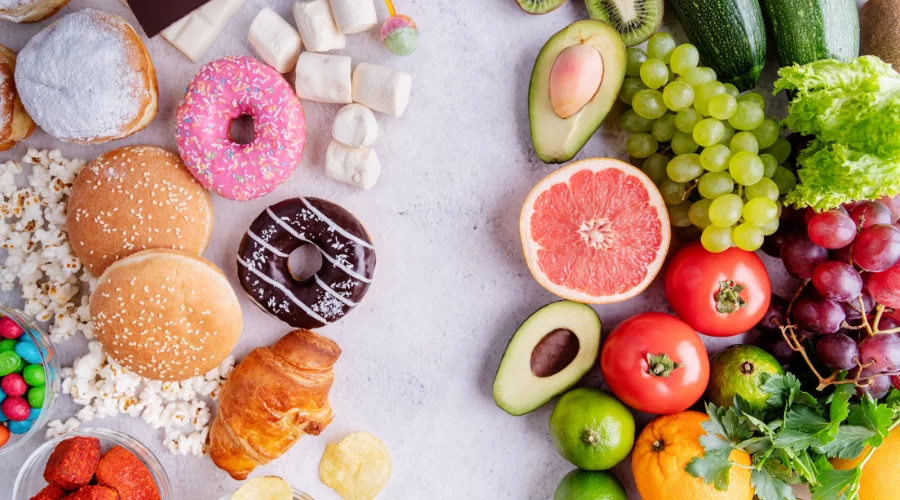
how to find the balance between healthy eating and dieting
It can be hard to find the right balance between healthy eating and dieting without becoming obsessed with food.
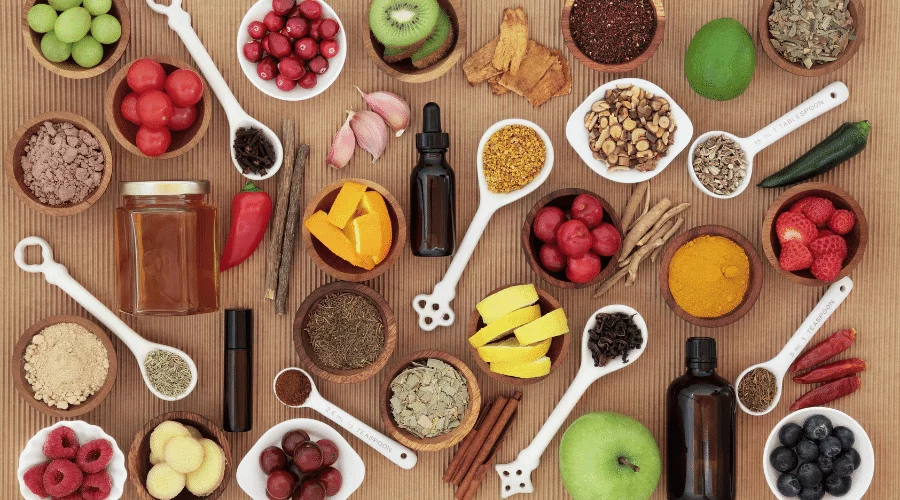
Can you use food as medicine?
“Let food be thy medicine, and let medicine be thy food.” We’re all familiar with this quote attributed to Hippocrates, and we all know the huge impact our food choices have on our health.
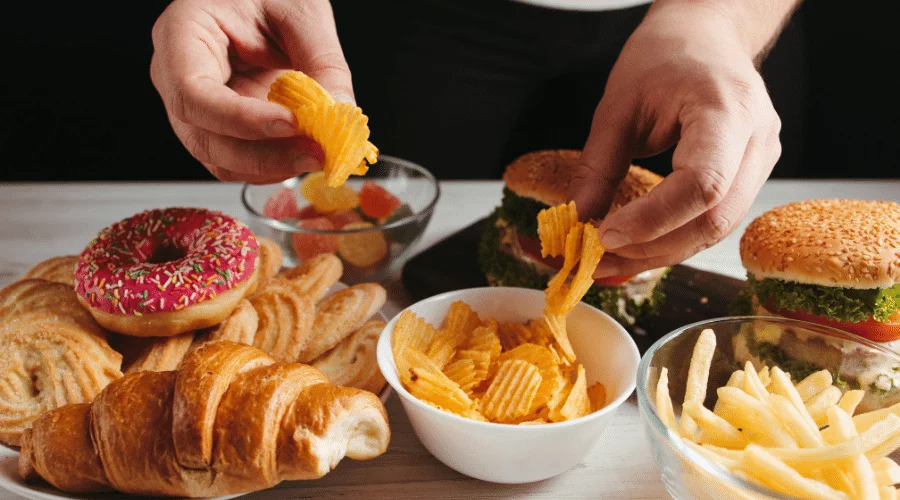
How to finally stop overeating for good!
Overeating means eating past your body’s actual needs, and it can be rather uncomfortable.
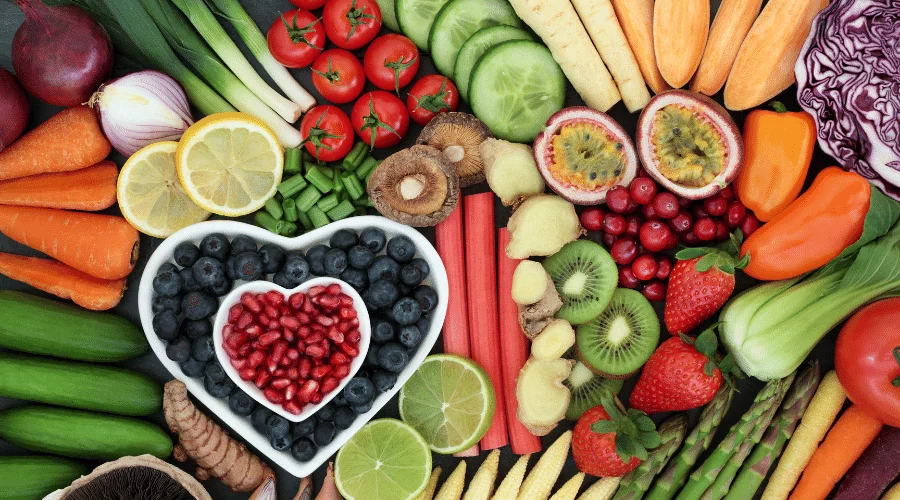
The anti-inflammatory diet: get rid of inflammation
You’ve certainly heard about the anti-inflammatory diet before and the benefits it could have on your body.
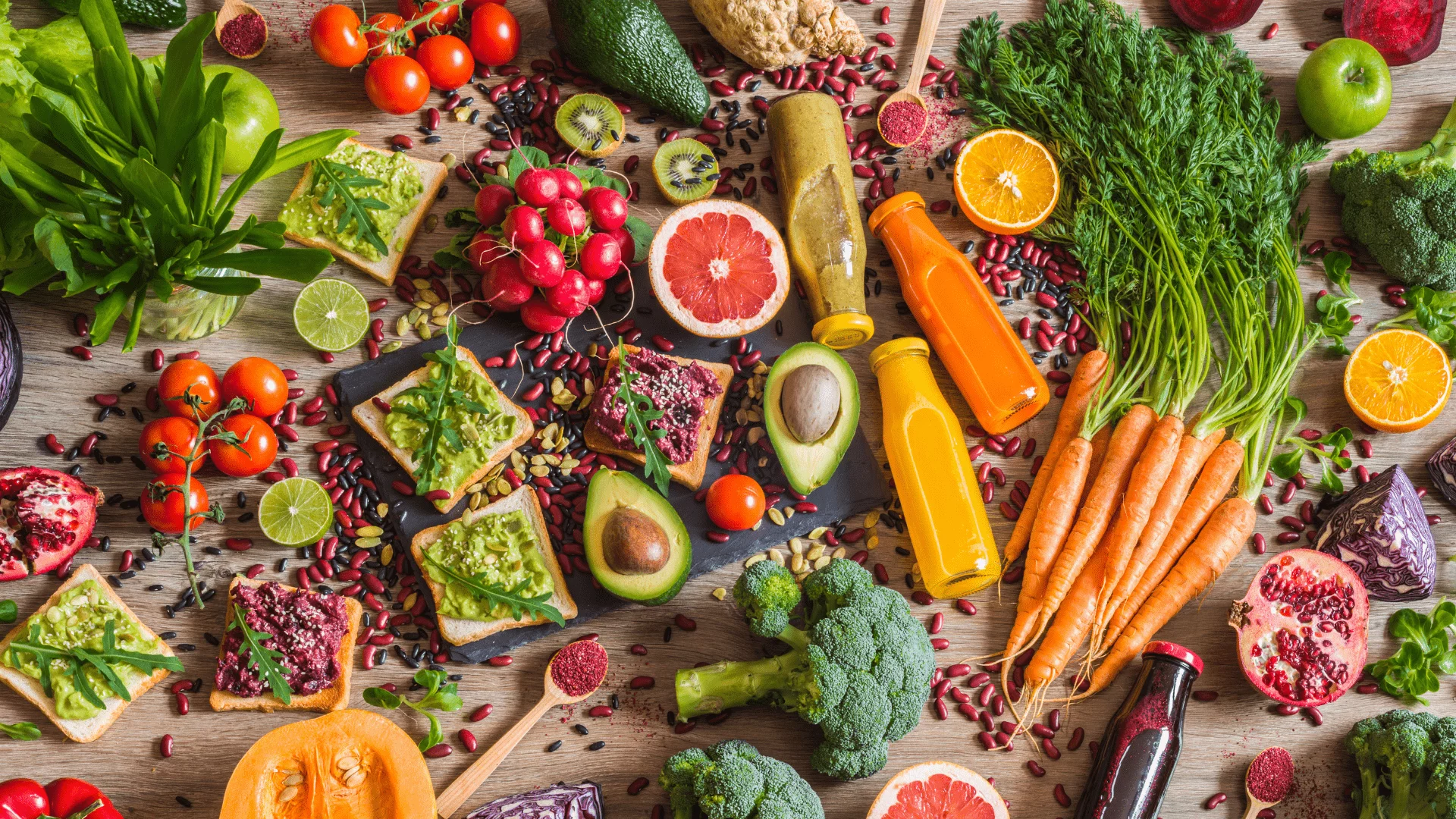
The complete beginner’s guide to veganism
Even though you can absolutely be healthy on a diet that includes animal products, the scientific consensus shows that increasing your consumption of plant-based foods is what is best for health.

Physical vs emotional hunger—learn the difference
You may be aware that physical hunger is not the only type of hunger that exists. There are actually two main types of hunger: physical hunger and emotional hunger



Comments are closed.